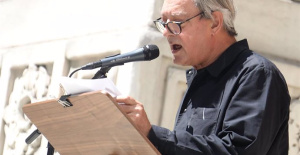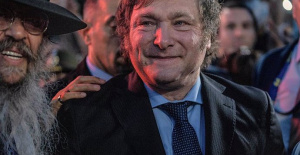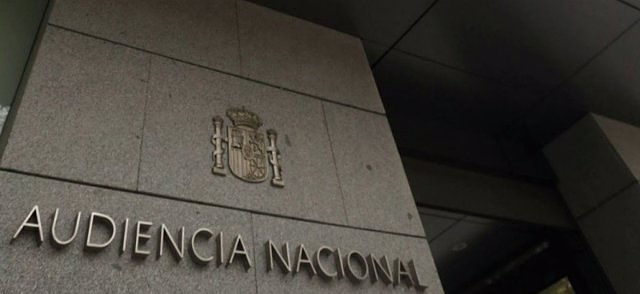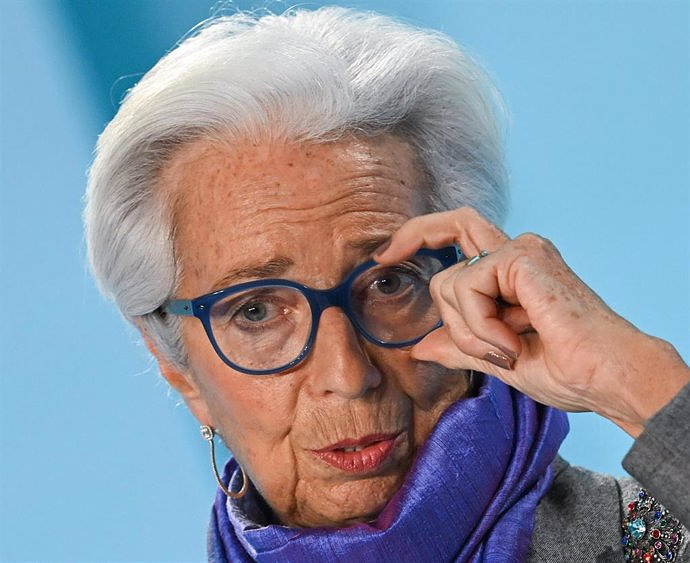The magistrates consider that despite the time that has elapsed, fair and due satisfaction must be given to the victims
MADRID, 16 Ene. (EUROPA PRESS) -
The National Court has agreed to extradite to Uruguay a doctor claimed in that country for advising the military in interrogations with torture between 1972 and 1975 -during the dictatorship-, facts that would constitute the crimes of abuse of authority against the detainees, serious injuries and illegal deprivation of liberty, classified as crimes against humanity.
The facts for which extradition was requested by the 27th Criminal Court of First Instance in Montevideo (Uruguay) were based on complaints filed by eight alleged victims of the military in the dictatorship regime and who suffered torture in one of detention centers, the 6th Mechanized Cavalry Regiment between 1972 and 1975.
In their accounts, the victims denounced that Dr. Carlos Américo Suzacq "advised" the soldiers who were interrogating the detainees regarding "when to stop or continue" with the torture.
In fact, in the account of one of the victims it is indicated that he was subjected to interrogations for four days, alternated with "harsh torture sessions", in which he remained "naked and handcuffed by his legs and hands", and they applied electric shocks to him. . He narrated that the doctor Suzacq was the one who "advised the military in the midst of torture, indicating whether he was in a condition to continue receiving torture."
During the hearing, the defendant opposed his delivery to Uruguay and claimed his Spanish nationality, which he had acquired by marriage in 1978, as well as his roots in Spain since 1977. That year he went into exile and established his residence in this country, working as a doctor.
In addition, it alleged the statute of limitations given that in Spain the crime against humanity was introduced after the facts that are the subject of the claim (LO 15/2003), as well as the crime of torture that was introduced by LO 5/2010 in this same year.
Now, the court of the National Court that has seen the extradition indicates that the possibility that the facts have prescribed according to the Spanish legal system, despite the fact that Uruguay expresses in the extradition request that the crimes that are the subject of the claim have not prescribed because they are of crimes against humanity, "is nothing more than an optional cause for refusal of surrender". In other words, the decision to extradite the doctor depends on the will of the magistrates.
The court considers that in this case the criteria of double jeopardy and minimum punishment are met, and also argues that Spanish nationality is not cause for refusal of extradition, nor is the fact of having practiced medicine in Spain for 29 years.
"Notwithstanding this, and even considering that more than forty years have elapsed since the events denounced occurred and that they are now the subject of a claim, the nature and seriousness of the same, as well as the avoidance of their going unpunished, leads this court to accede to the extraditional demand, thus following the criteria of the Plenary of the Criminal Chamber in order 255/2008, of April 16, 2018", concludes the Chamber.
The Chamber, in view of the seriousness of the crimes, emphasizes that the request for collaboration made by the requesting State must be addressed, and that fair and due satisfaction must be given to the victim in order to unravel, as far as possible, what event, for which purpose, the presence of the defendant before the judicial bodies in charge of the investigation in the criminal proceedings followed in the Oriental Republic of Uruguay becomes "essential".
Lastly, it indicates that the time distance between the facts and the extradition request is not sufficient reason to rule out the demanded surrender. On the contrary, the court adds, it is the reasons indicated in the order that lead him to opt for the solution of making extradition viable, serving this impulse of cooperation between states as a trigger that can trigger obtaining a judicial response. by the Uruguayan courts of justice to the demand for justice urged some time ago.
According to the order, "it is a way of giving entry to the law of treaties and the agreements assumed by Spain in the international community that cry out for the dignity and justice of the victims of extremely serious conduct for constituting crimes against humanity, forcing to his pursuit."

 Exploring Cardano: Inner Workings and Advantages of this Cryptocurrency
Exploring Cardano: Inner Workings and Advantages of this Cryptocurrency Seville.- Economy.- Innova.- STSA inaugurates its new painting and sealing hangar in San Pablo, for 18 million
Seville.- Economy.- Innova.- STSA inaugurates its new painting and sealing hangar in San Pablo, for 18 million Innova.- More than 300 volunteers join the Andalucía Compromiso Digital network in one month to facilitate access to ICT
Innova.- More than 300 volunteers join the Andalucía Compromiso Digital network in one month to facilitate access to ICT Innova.-AMP.- Ayesa acquires 51% of Sadiel, which will create new technological engineering products and expand markets
Innova.-AMP.- Ayesa acquires 51% of Sadiel, which will create new technological engineering products and expand markets Prominent American writer Paul Auster dies at 77 from lung cancer
Prominent American writer Paul Auster dies at 77 from lung cancer RELEASE: Rendeavor Expands High-Speed Internet Access to Local Communities Around Tatu, Kenya
RELEASE: Rendeavor Expands High-Speed Internet Access to Local Communities Around Tatu, Kenya Real Madrid saves a draw in Munich and will appeal again to the Bernabéu
Real Madrid saves a draw in Munich and will appeal again to the Bernabéu The Congress of Argentina approves the omnibus law that allows the privatization of some public companies
The Congress of Argentina approves the omnibus law that allows the privatization of some public companies How Blockchain in being used to shape the future
How Blockchain in being used to shape the future Not just BTC and ETH: Here Are Some More Interesting Coins Worth Focusing on
Not just BTC and ETH: Here Are Some More Interesting Coins Worth Focusing on Valencia unanimously approves the ordinance to allocate spaces to test innovative initiatives
Valencia unanimously approves the ordinance to allocate spaces to test innovative initiatives UPV researchers promote a paid master's degree as a "talent factory" in integrated photonics
UPV researchers promote a paid master's degree as a "talent factory" in integrated photonics A spin-off of the UV works on obtaining high-resolution 3D biomedical images in real time
A spin-off of the UV works on obtaining high-resolution 3D biomedical images in real time They create a bank of machinery sounds to prevent breakdowns through artificial intelligence
They create a bank of machinery sounds to prevent breakdowns through artificial intelligence A million people demonstrate in France against Macron's pension reform
A million people demonstrate in France against Macron's pension reform Russia launches several missiles against "critical infrastructure" in the city of Zaporizhia
Russia launches several missiles against "critical infrastructure" in the city of Zaporizhia A "procession" remembers the dead of the Calabria shipwreck as bodies continue to wash up on the shore
A "procession" remembers the dead of the Calabria shipwreck as bodies continue to wash up on the shore Prison sentences handed down for three prominent Hong Kong pro-democracy activists
Prison sentences handed down for three prominent Hong Kong pro-democracy activists ETH continues to leave trading platforms, Ethereum balance on exchanges lowest in 3 years
ETH continues to leave trading platforms, Ethereum balance on exchanges lowest in 3 years Investors invest $450 million in Consensys, Ethereum incubator now valued at $7 billion
Investors invest $450 million in Consensys, Ethereum incubator now valued at $7 billion Alchemy Integrates Ethereum L2 Product Starknet to Enhance Web3 Scalability at a Price 100x Lower Than L1 Fees
Alchemy Integrates Ethereum L2 Product Starknet to Enhance Web3 Scalability at a Price 100x Lower Than L1 Fees Mining Report: Bitcoin's Electricity Consumption Declines by 25% in Q1 2022
Mining Report: Bitcoin's Electricity Consumption Declines by 25% in Q1 2022 Oil-to-Bitcoin Mining Firm Crusoe Energy Systems Raised $505 Million
Oil-to-Bitcoin Mining Firm Crusoe Energy Systems Raised $505 Million Microbt reveals the latest Bitcoin mining rigs -- Machines produce up to 126 TH/s with custom 5nm chip design
Microbt reveals the latest Bitcoin mining rigs -- Machines produce up to 126 TH/s with custom 5nm chip design Bitcoin's Mining Difficulty Hits a Lifetime High, With More Than 90% of BTC Supply Issued
Bitcoin's Mining Difficulty Hits a Lifetime High, With More Than 90% of BTC Supply Issued The Biggest Movers are Near, EOS, and RUNE during Friday's Selloff
The Biggest Movers are Near, EOS, and RUNE during Friday's Selloff Global Markets Spooked by a Hawkish Fed and Covid, Stocks and Crypto Gain After Musk Buys Twitter
Global Markets Spooked by a Hawkish Fed and Covid, Stocks and Crypto Gain After Musk Buys Twitter Bitso to offset carbon emissions from the Trading Platform's ERC20, ETH, and BTC Transactions
Bitso to offset carbon emissions from the Trading Platform's ERC20, ETH, and BTC Transactions Draftkings Announces 2022 College Hoops NFT Selection for March Madness
Draftkings Announces 2022 College Hoops NFT Selection for March Madness























